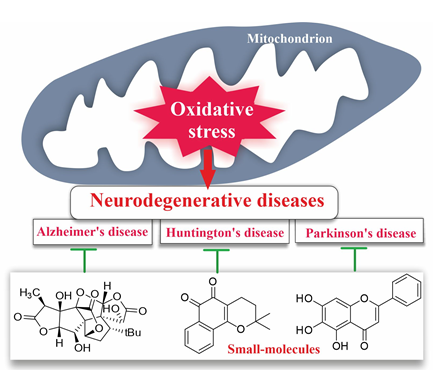Small-molecules against Oxidative stress mediated Neurodegenerative diseases

DOI:
https://doi.org/10.62110/sciencein.cbl.2023.v10.626Keywords:
Neurodegeneration, Neuroblastoma, Alzheimer's disease, Parkinson's disease, Huntington's disease, Oxidative stressAbstract
Neurodegenerative diseases, marked by the gradual deterioration of neuronal structure and function, impose a significant burden on global healthcare systems. Oxidative stress, resulting from an imbalance between reactive oxidant production and cellular antioxidant defense, is believed to play a significant role in the development of various neurodegenerative disorders, including Alzheimer's disease, Parkinson's disease, and Huntington's disease. Recently, there has been a growing interest in exploring small compounds as potential therapeutic agents to counteract oxidative stress. In addition to highlighting the potential of small molecules to prevent oxidative stress-mediated neuronal damage, this article provides an overview of the function of oxidative stress in neurodegenerative illnesses. Targeting numerous oxidative stress-related pathways, a number of small molecules, including both natural and synthetic antioxidants, have shown promise for neuroprotective benefits. These substances neutralise reactive oxidants, boost endogenous antioxidant defences, reduce inflammation, alter mitochondrial function, and encourage neurotrophic growth.
URN:NBN:sciencein.cbl.2023.v10.626







